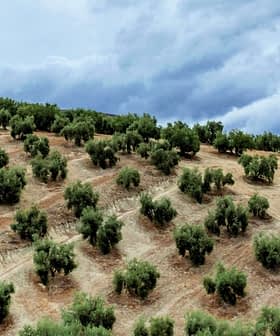
Die Bedeutung von Branding und Standardisierung in der Olivenölindustrie wurde wiederholt betont. Branding kann die Qualität eines Produkts bestimmen und seinen Ruf stärken. Noch wichtiger ist, dass der Mehrwert des Brandings zu Gewinnen führen kann, die der Qualität des Produkts entsprechen.
Da sich die Mehrheit der Länder der Eurozone heute auf dem düsteren und steilen Weg der lauernden Finanzkrise befindet, sollten Unternehmen der Olivenölindustrie vorsichtig sein: Das europäische BIP insgesamt schrumpfte im zweiten Quartal 0.4 um 2012 Prozent im Vergleich zu 2011 sind die beiden größten Volkswirtschaften der Zone in Gefahr; Deutschland verzeichnete ein geringfügiges Wachstum von 0.3 Prozent, während das Wachstum in Frankreich stagnierte. Sogar Belgien, das Zentrum der Eurozone, fängt an, den bitteren Geschmack der Rezession zu schmecken, wobei sein Wachstum im zweiten Quartal 0.6 gegenüber dem ersten Quartal um 2012 Prozent zurückging.
Die Kaufkraft der Verbraucher nimmt in Europa stetig ab und bald werden sie nach günstigeren Produkten suchen als die Menschen in Griechenland bereits erledigt. Daher sollten Olivenölproduzenten und -exporteure zweimal darüber nachdenken, bevor sie ihre Markenflaschen extra vergine auf den gemeinsamen europäischen Markt schicken.
Die naheliegende Lösung besteht darin, sich anderen Märkten zuzuwenden und dort für ihre Produkte zu werben. Russland und China sind in der Lage, große Mengen Olivenöl aufzunehmen, und bereits zu diesem Zeitpunkt haben sich einige unternehmungslustige Exporteure dort niedergelassen.
Nach der Teilnahme an einer Handelsausstellung in Moskau und dem Erstaunen der Besucher mit seinen hochwertigen Produkten, dem Kreter "Die Organisation Crissa Gea schickt ihr Öl an russische Supermärkte und Restaurants. Die nächste Station ist die Region Szechuan in China mit 80 Millionen Verbrauchern.
Dann gibt es andere Märkte, die nicht so vielversprechend, aber offen für neue Produkte sind. "Agrovim “mit Sitz in Südgriechenland exportiert sein Olivenöl nach Dubai, nachdem es den Markt dort praktisch monopolisiert hat.
Eine Alternative besteht darin, bestimmte Zielgruppen zu differenzieren und anzusprechen, ein anspruchsvollerer und marketingintensiverer Prozess. Firmen mögen "Moria Elea “und "Speiron “verkaufen ihr extra natives Ultra-Premium-Öl zu extravaganten Preisen: 500 ml für 29 € bzw. 50 €. Die Preise steigen, wenn Sie es in einer Geschenkbox bestellen. Aber alles wird bis ins kleinste Detail erledigt, von der Flasche über das Etikett und den Korken bis hin zum Inhalt. Diese Produkte sind nicht leicht auf dem Markt oder in Delikatessengeschäften zu finden, und ihre Käufer sind diejenigen, die nach Perfektion streben und es sich leisten können.
Es gibt Möglichkeiten, Olivenöl in turbulenten Zeiten zu fördern und zu verkaufen. Sie brauchen Professionalität, Ausdauer und aufgeschlossene Menschen.








